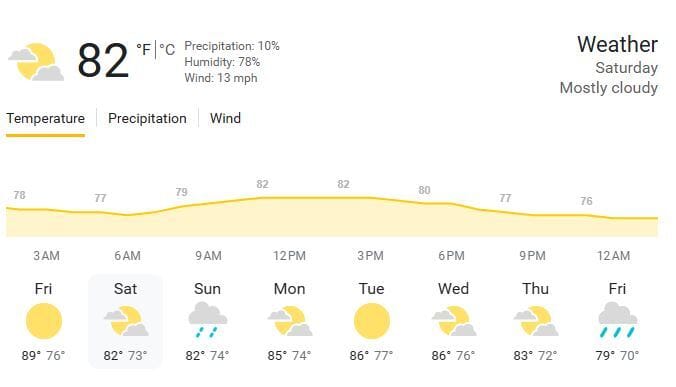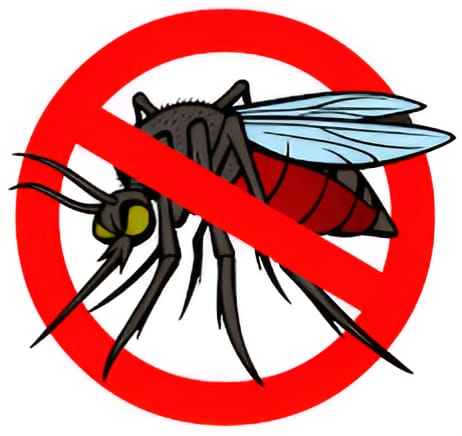- Cape May Local Scoop
- Posts
- Birdwatching Frenzy: Streaked Shearwater Draws Crowds to Cape May
Birdwatching Frenzy: Streaked Shearwater Draws Crowds to Cape May
Issue #405


In This Cape May Local Scoop Issue…
📆 Cape May Events
☀️ Cape May Local Weather
🐦 Birdwatching Frenzy: Streaked Shearwater Draws Crowds to Cape May
🏖️Shore Towns Face $34M Lifeguard Pension Crisis, State Comptroller Finds
🦟 Mosquito-Proof Your Summer with These Expert-Backed Tips
Cape May Local Scoop’s Events Are Sponsored By: Shop Local


👇 Here’s what’s going on in the Cape May Local Area👇
July 26
Guided Nature Walks at Cape May National Wildlife Refuge - 9:00 am - 10:00 am
Goat Yoga at Willow Creek Winery - 10:00 am - 12:15 pm
Whales & Dolphin Weekend Cruise - 10:00 am - 12:30 pm
Cape May Lighthouse - 10:00 am - 5:00 pm
Emlen Physick Estate Tour - 12:30 pm - 1:15 pm
Mansions by the Sea Trolley Tour: Then & Now - 1:45 am - 12:45 pm
Seagrove Art Cooperative presents: Artists Here And Now - 5:00 pm - 9:00 pm
Cape May Stage Presents: Sexy Laundry - 8:00 pm - 9:30 pm
July 27
Whales & Dolphin Weekend Cruise - 10:00 am - 12:30 pm
Mansions by the Sea Trolley Tour: Then & Now - 1:45 am - 12:45 pm
Historic Cold Spring Village Presents: Hands-On History - 11:00 am - 4:00 pm
Camille Peruto at Willow Creek Winery - 2:00 pm - 6:00 pm
Seagrove Art Cooperative presents: Artists Here And Now - 5:00 pm - 9:00 pm
Cape May Stage Presents: Sexy Laundry - 8:00 pm - 9:30 pm
Summer Concert: Herman’s Hermits Starring Peter Noone - 8:00 pm - 10:00 pm
July 28
Cape May Lighthouse - 10:00 am - 5:00 pm
Dolphin Watch Around Cape May - 10:00 am - 12:00 pm
Third Annual Writing Workshops With Poet Laureate Sylvia Baer: Fiction - 10:00 am - 12:00 pm
Fisherman's Wharf Walking Tour - 10:15 am - 11:00 am
Seagrove Art Cooperative presents: Artists Here And Now - 5:00 pm - 9:00 pm
Jimm Ross at the Mad Batter - 6:00 pm - 9:00 pm
Music in the Park at Rotary Park Bandstand - 7:00 pm - 8:30 pm
July 29
Harbor Safari - 10:30 am - 12:00 pm
West Cape May Farmers’ Market - 3:00 pm - 7:30 pm
Tunesday Tuesdays on the Washington Street Mall - 4:00 pm - 8:00 pm
Barry Tischler at the Mad Batter - 6:00 pm - 9:00 pm
Family Magic Show at Cape May Convention Hall - 7:00 pm - 8:00 pm
Cape May Stage Presents: Sexy Laundry - 8:00 pm - 9:30 pm
July 30
Beachcombing the Cove - 8:30 am - 9:30 am
Family Fun Outdoor Crafts Show at the Lighthouse - 9:00 am - 2:00 pm
The Nature of Art – Children’s Art Class - 12:30 pm - 2:00 pm
Grill Nights Series at Cape May Winery - 6:00 pm - 9:00 pm
The Squares at the Mad Batter - 6:00 pm - 9:00 pm
East Lynne Theater Company presents: Every Brilliant Thing - 7:00 pm - 10:00 pm
Cape May Stage Presents: Sexy Laundry - 8:00 pm - 9:30 pm
OUR NEW EVENT SUBMISSION FORM
Have an Upcoming Event?



Birdwatching Frenzy: Streaked Shearwater Draws Crowds to Cape May

A streaked shearwater, a seabird typically found in the Pacific Ocean, was spotted near the Cape May-Lewes Ferry in what is now confirmed as the first documented Atlantic sighting of the species. The event has thrilled bird watchers across the region and drawn visitors to Cape May, a known migratory bird hotspot. Cape May has long been a hotspot for migratory birds, attracting species from across the hemisphere. Still, sightings like this one are extremely rare. For many, it’s a once-in-a-lifetime event—an avian anomaly that’s turned a quiet day on the ferry into a statewide spectacle. Even casual beachgoers and day-trippers are taking notice. With Cape May’s natural charm, historic lighthouse, and summer beauty already drawing crowds, this rare visitor is giving people one more reason to head south.
Shore Towns Face $34M Lifeguard Pension Crisis, State Comptroller Finds

A state report revealed that six New Jersey shore towns face more than $34 million in unfunded lifeguard pension liabilities. The Office of the State Comptroller found issues ranging from underfunded plans to missing actuarial data. Towns like Margate and Ventnor have taken corrective steps, while others, such as Sea Isle City, dispute the findings. In addition, Asbury Park and Long Branch were found to have never implemented the lifeguard pension programs required by state law. Other shore communities, including Cape May, North Wildwood, Wildwood, and Ocean City, failed to obtain actuarial evaluations, leaving the costs of their pension obligations unknown. A nearly century-old state law mandates that any city bordering the Atlantic Ocean with a population under 50,000—classified as “fourth-class” cities—must provide pensions for lifeguards. However, the OSC report calls into question the effectiveness of such benefits, suggesting that seasonal work does not justify the long-term financial burden placed on municipalities. The office recommended phasing out pensions for new lifeguards and renegotiating terms for current employees. The report suggests that providing pensions for seasonal lifeguards is financially impractical and recommends legislative reforms to phase out or restructure the system.
Mosquito-Proof Your Summer with These Expert-Backed Tips

Long summer evenings are meant for grilling, stargazing, and relaxing outside—not swatting away mosquitoes. If buzzing pests have taken over your backyard, it’s time to fight back with expert strategies that keep mosquitoes out of your space safely and effectively. According to pest control professionals and entomologists, the first step to reclaiming your yard is understanding what attracts mosquitoes in the first place. Female mosquitoes, the ones that bite, are on the hunt for places to lay their eggs—and that often means they’re lurking close to where they were born. If they’re in your backyard, chances are their breeding ground is nearby. Standing Water:
Top of the list is standing water—any stagnant moisture offers the perfect mosquito nursery. Carbon Dioxide: Humans and animals exhale carbon dioxide, which mosquitoes can detect from a distance. Dense Shade and Overgrown Grass:
Overgrown lawns or thick and untamed shrubs are the perfect resting spot.
Effective Ways to Eliminate Backyard Mosquitoes. Remove Standing Water:
Regularly check and empty containers that collect rainwater, including plant saucers, trash can lids, and kids’ toys. Clean out gutters and avoid letting water pool in birdbaths or tree crevices. The goal is to disrupt the mosquito life cycle by eliminating their breeding grounds. Trim Trees and Shrubs:
Keeping your lawn mowed and trees pruned improves airflow and helps dry out moist, shady areas where mosquitoes like to hide. Install Mosquito Traps:
Mosquito traps that use carbon dioxide or UV light to lure and trap insects can help reduce populations—though they work best as part of a broader control plan, not on their own. Add Protective Netting:
Mesh screens on windows and mosquito netting around patios or gazebos can help block pests from entering your favorite gathering spots. Plant a Mosquito-Repelling Garden:
A well-chosen garden can double as a mosquito deterrent. Plants like lavender, citronella, lemongrass, catnip, and marigolds naturally repel mosquitoes through their scent or essential oils. Consult a Professional:
For persistent issues, bringing in a pest control expert can help pinpoint hidden problem areas and apply targeted treatments that won’t harm pollinators like bees or butterflies. By making your yard less inviting to mosquitoes—and more inviting to you—you’ll be able to enjoy your summer evenings without the bites.
What historic feature can still be seen at Sunset Beach in Cape May, New Jersey? |
Answer to the July 25th Trivia Question
Which famous American architect was a frequent visitor to Cape May, New Jersey?
A) Frank Lloyd Wright
B) Louis Sullivan
C) Daniel Burnham
D) I.M. Pei
Answer: A) Frank Lloyd Wright
Frank Lloyd Wright, the renowned American architect, was one of the notable visitors to Cape May. He stayed at the Windsor Hotel, along with other distinguished guests such as railroad tycoon Diamond Jim Brady and media mogul William Randolph Hearst
How Did We Do In This Issue?Cape May Local Scoop Wants To Know Your Thoughts About Our Newsletter... |